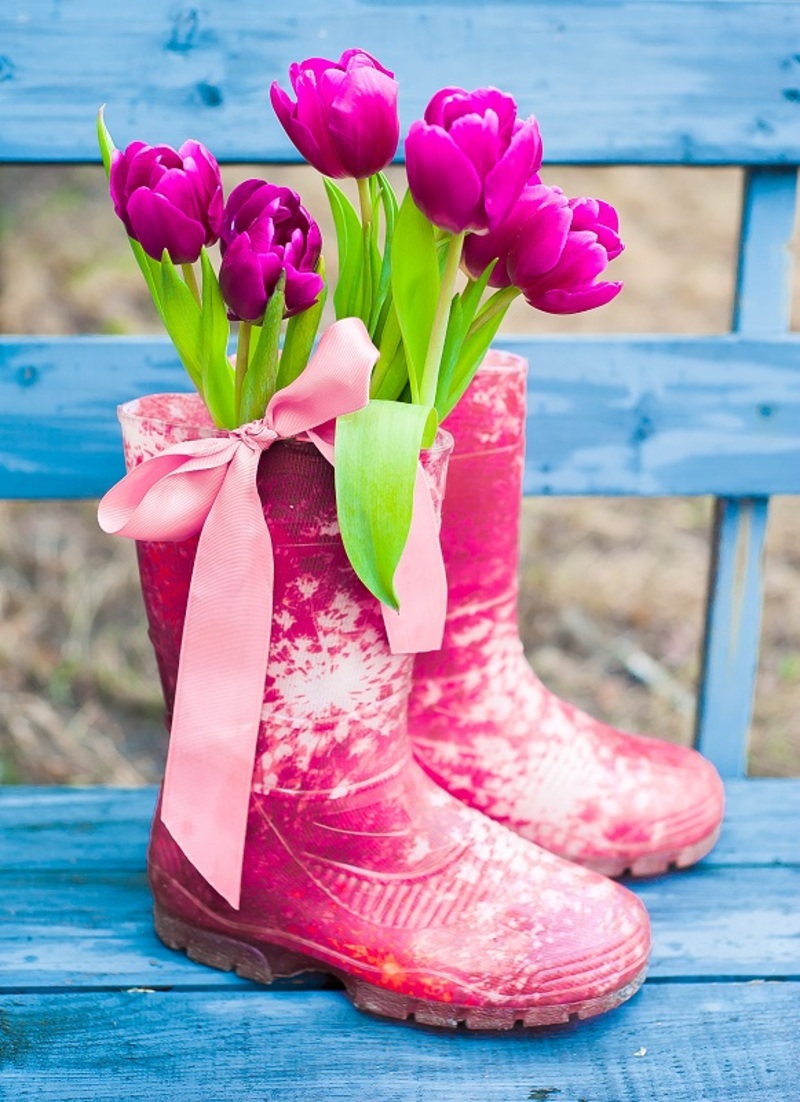Effortlessly Enhance Poinsettia Longevity
Posted on 18/08/2025
Effortlessly Enhance Poinsettia Longevity: Keep Your Holiday Plant Thriving
Do you love the vibrant, festive charm of poinsettias but struggle to keep them alive after the holidays? If you want your poinsettia to not only survive but also flourish for months or even rebloom year after year, you're in the right place. This comprehensive guide reveals proven techniques to effortlessly enhance poinsettia longevity. With the right care, your poinsettia can remain a brilliant feature in your home long after the holiday season.
Why Poinsettia Longevity Matters
The poinsettia plant (Euphorbia pulcherrima) is synonymous with holiday cheer, but many people inadvertently treat them as disposable after the New Year. However, with minimal extra effort, your poinsettia longevity can be significantly extended. Not only does this reduce waste and save money, but it also gives you the satisfaction of nurturing a living holiday tradition.

Understanding the Poinsettia: Nature, Varieties, and Longevity
To maximize poinsettia longevity, it helps to understand what makes this tropical plant unique:
- Native Origin: Poinsettias originate from Mexico and Central America, where they grow as perennial shrubs.
- Colorful "Blooms": The red, pink, white, or variegated "flowers" are actually bracts (modified leaves). True poinsettia flowers are tiny and yellow at the center.
- Sensitive to Environment: As tropical plants, poinsettias are sensitive to drafts, chilly air, and dry conditions.
Choosing a Healthy Poinsettia to Start Strong
The first step in extending the life of your poinsettia is selecting a robust plant. Here are key tips:
- Inspect Bracts: Choose plants with vibrant, unblemished bracts and no signs of wilting or discoloration.
- Check Foliage: Healthy green leaves (not yellowing or dropping) are essential for plant strength.
- Tiny Flowers: Pick a poinsettia with tightly clustered, yellow buds -- not shedding pollen -- for maximum display time.
- Root Health: Gently lift the pot; it should feel slightly heavy (indicating proper watering).
- Packaging: If buying in winter, ensure it's wrapped to protect from cold during transit.
Setting Up Your Poinsettia for Success
Once home, it's vital to create an environment where your poinsettia can thrive for months:
- Light: Place near a sunny, south-facing window; poinsettias prefer at least 6 hours of indirect, bright sunlight daily.
- Temperature: Daytime temperatures of 65-70?F (18-21?C) and evenings no cooler than 60?F (15?C) are best.
- Avoid Drafts: Keep away from heating vents, open doors, and cold windows.
- Humidity: Ideally, maintain moderate humidity. Poinsettias dislike extremely dry air.
Effortless Poinsettia Care Techniques for Extended Lifespan
With the right care, you'll not only enhance poinsettia lifespan but also encourage vibrant color and healthy growth. Remember these key care steps:
1. Watering Wisely
- Check Moisture: Water when the top inch of soil feels dry (about once per week).
- Drainage: Never let poinsettias sit in excess water. Remove foil sleeves or punch holes to allow proper drainage.
- Water Evenly: Apply water to the base until it starts to emerge from drainage holes.
Pro tip: Overwatering causes root rot--one of the top killers of poinsettias!
2. Proper Placement and Sunlight
- Ideal Position: South, east, or west-facing windows with filtered light are perfect.
- Rotate Weekly: Rotate your plant every few days to keep growth even and bracts vibrant.
3. Temperature and Humidity Balancing
- Stable Temperature: Avoid exposure to cold drafts. Lower than 50?F (10?C) can damage leaves and bracts.
- Humidity Hack: Use a pebble tray or room humidifier if indoor air is very dry (common in winter).
4. Correct Fertilizing Practices
- Fertilize Cautiously: Do not fertilize while your poinsettia is in bloom. Wait until new growth starts in late winter or spring.
- Balanced Fertilizer: Use a houseplant fertilizer diluted to half strength every 3-4 weeks during the growing season (spring-summer).
Troubleshooting: Common Poinsettia Problems & Easy Solutions
Even with careful attention, your poinsettia may face challenges. Here's how to identify and solve the most common issues to maintain healthy poinsettias:
- Yellowing or Dropping Leaves: Often caused by overwatering, cold drafts, or sudden temperature shifts. Adjust placement and watering habits.
- Bract Fading: Insufficient sunlight is usually the culprit. Move your poinsettia closer to a light source (avoid direct midday sun).
- Wilting or Soft Stems: A sign of root rot. Let the soil dry before watering again and check for proper drainage.
- Sticky Sap: Poinsettias produce a natural, milky latex when stems are broken -- avoid contact with skin and pets, it can be irritating.
- Pests: Watch for whiteflies and spider mites. Wipe leaves with a damp cloth and use insecticidal soap if necessary.
Encouraging Poinsettia Rebloom for Year-Round Enjoyment
Want to make your poinsettia bloom beautifully next holiday season? It takes more planning, but is very rewarding!
Poinsettia Year-Round Care Calendar
- January-March: Continue regular care as blooms fade. Water only when soil is dry.
- April: As bracts drop, cut back stems to 6-8 inches. Continue regular watering, but wait to fertilize.
- May-September: Move outdoors after threats of frost pass (partial shade). Fertilize as new growth appears. Prune as needed to keep bushy.
- October: Critical rebloom step! Provide 14-16 hours of complete darkness nightly for 8-10 weeks -- cover with a box, or place in a closet each evening, exposing to bright light during the day.
- Late November-December: Return to normal indoor spot. With luck, vibrant bracts should reappear for the holidays.
Patience is required -- if you miss the dark period, your poinsettia may not color fully, but healthy plants will still thrive.
Best Tips to Effortlessly Prolong Poinsettia Life
To sum up, these simple, actionable tips let your poinsettia longevity soar with minimal effort:
- Buy healthy plants with no visible damage.
- Keep away from temperature extremes and drafts.
- Water only when needed--avoid soggy roots!
- Ensure sunlight--rotate regularly for even growth.
- Don't fertilize during bloom--wait until spring.
- Repot in spring if roots seem crowded or plant outgrows its container.
- Prune to encourage bushiness after the blooming season.
- Attempt reblooming for a year-round poinsettia display.

Frequently Asked Questions about Enhancing Poinsettia Longevity
Are poinsettias poisonous?
Contrary to persistent myths, poinsettias are not highly poisonous to people or pets. Eating large quantities may cause mild stomach upset, and the sap may irritate skin or eyes. Keep out of reach of pets and children as a precaution.
Can I plant my indoor poinsettia outside?
In warm climates (USDA zones 9-11), poinsettias can live outdoors year-round. In cooler areas, enjoy poinsettias indoors or outdoors only in frost-free months.
How long do poinsettias last with proper care?
With attentive, correct care, a poinsettia can stay colorful for 2-4 months indoors. Some well-tended plants live for several years!
What to do when poinsettia bracts fade?
Don't toss your plant! Remove faded bracts, continue gentle watering, and follow the calendar above to encourage new growth and future blooms.
Conclusion: Celebrate Longer with Vibrant, Healthy Poinsettias
By applying these simple yet effective strategies to enhance poinsettia longevity, you'll become the envy of festive plant lovers everywhere. Extend the magic of the holidays in your home, reduce waste, save money, and cultivate your own living traditions.
Whether you're a beginner or a plant enthusiast, keep this guide handy to ensure your poinsettia remains lush, healthy, and beautiful season after season.
Share your experience caring for poinsettias or any tips that work for you in the comments below - let's all enjoy longer-lasting poinsettias together!
Latest Posts
Which Flower is the Perfect Reflection of Your Nature?
Embracing the Valentine's Red Rose Tradition
Unlocking Sunflower Knowledge You Never Knew Existed






